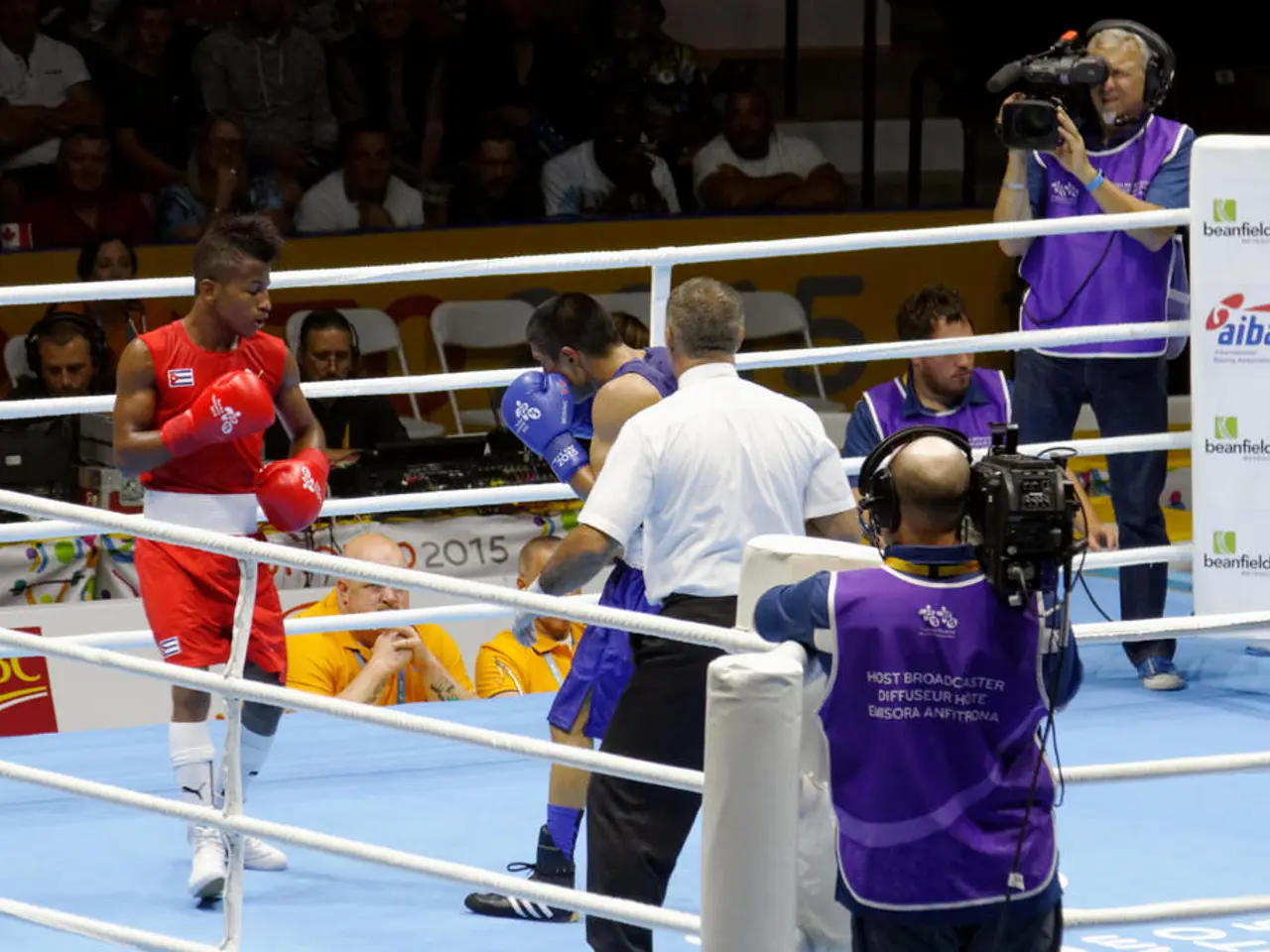Japanese Boxing Tragedy: Brain Hemorrhages Claim Lives of Two Athletes
===============================================================================
In a heartbreaking turn of events, the world of boxing was left in shock following the deaths of two Japanese boxers, Shigetoshi Kotari and Hiromasa Urakawa, due to brain hemorrhages sustained during their respective fights.
The World Boxing Organization (WBO) confirmed the tragic news on Instagram, while the Japanese boxing federation remained silent on the circumstances leading to the fatal injuries. Kotari, a super featherweight, fought Yamato Hata for the Oriental and Pacific Boxing Federation (OPBF) super featherweight title, with the fight ending in a draw. Urakawa, a featherweight, lost his fight against Yoji Saito by technical knockout at the same event.
Shigetoshi Kotari underwent emergency surgery after his brain hemorrhage but passed away on Friday. Hiromasa Urakawa, on the other hand, underwent emergency surgery but later succumbed to his injuries, as reported by the BBC. Urakawa passed away a day after the event.
The deaths of Kotari and Urakawa are not isolated incidents. Irish fighter John Cooney, aged 28, passed away a week after his super featherweight fight against Nathan Howells in February. Cooney suffered a brain hemorrhage during the fight and was immediately hospitalized in Belfast.
In response to these tragedies, the Japanese boxing federation announced that OPBF title fights will now be contested over ten rounds instead of twelve. The federation also emphasized the need for stricter medical protocols, urine tests, and weight management rules to prevent dehydration, which can increase vulnerability to brain injury.
The Japanese boxing authorities have also introduced enhanced medical cover during fights to promptly address injuries and improve survival chances. For boxers who require a craniotomy (brain surgery) due to brain injuries, the Japan Boxing Commission mandates automatic retirement from professional boxing to prevent further harm.
Moreover, ongoing injury surveillance, like from the National Electronic Injury Surveillance System, informs safety policies and prevention efforts. A study also highlighted the importance of protective gear and sport-specific injury prevention strategies among combat sports to reduce craniofacial and head injuries, which are prevalent in boxing.
The tragic events serve as a call for the boxing community to intensify efforts in making the sport safer. WBC President Mauricio Sulaiman expressed his condolences over Kotari's death, urging the need to make boxing safer and implement prevention programs. As the boxing world mourns the loss of Kotari and Urakawa, it stands united in its commitment to reducing the risk of fatal brain injuries in the sport.
- The Commission has also been consulted on the draft directive aimed at implementing stricter medical protocols, urine tests, and weight management rules to prevent dehydration and brain injury in boxing, given the recent occurrences of neurological disorders leading to fatalities.
- In light of the rising concern over medical-conditions, such as brain hemorrhages, in sports like boxing, science and health-and-wellness professionals are collaborating to develop protective gear and sport-specific injury prevention strategies, as highlighted in a recent study.
- The global boxing community, in its commitment to improving safety standards, is engaging with various sectors, including science, medical-conditions, health-and-wellness, and sports organizations, to address the prevalence of head injuries and promote neurological disorders awareness, as advocated by WBC President Mauricio Sulaiman.








